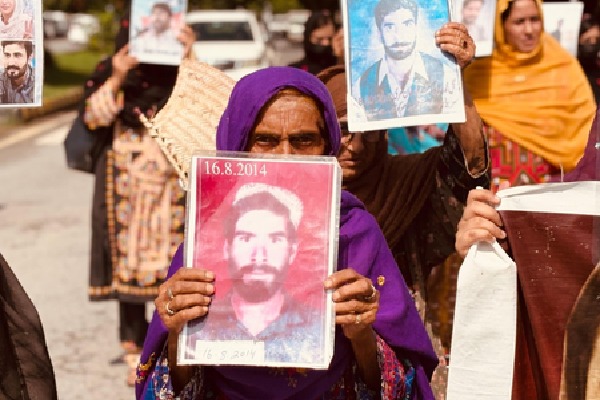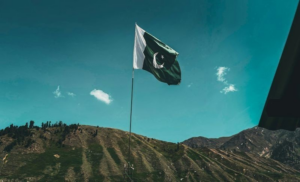
Once rarely invoked, Pakistan’s blasphemy laws now enable fear, vigilante violence, and false accusations, silencing dissent and endangering minorities
Pakistan’s blasphemy laws began as a colonial-era attempt to contain sectarian unrest in British India. The original 295-A clause was introduced in 1927 to curb deliberate insults to religion, although actual enforcement remained rare. After independence, blasphemy accusations were so uncommon that between 1947 and 1977, only around ten cases were prosecuted, and most were dismissed.
However, the landscape shifted dramatically under General Zia‑ul‑Haq’s Islamisation campaign in the 1980s.
Beginning in the 1980s, the law was strengthened in several steps, first targeting insults to Islamic personages, then adding the “Ahmadi clauses” in 1982. Section 295‑C, passed in 1986, mandates death or life imprisonment for blasphemy of the Prophet Muhammad. By 1987, more than 600 people had been charged, half of whom were religious minorities despite making up only around three per cent of the population.
From 1987 to 2021, at least 1,855 individuals faced charges, and as of 2014, a total of 1,296 cases had been filed in Punjab alone. More recent figures tell a chilling story: just 11 cases in 2020, nine in 2021, but according to Human Rights Watch (HRW), a staggering 475 in 2024.
Today, accusations wield blasphemy laws not as shields for faith, but as weapons for personal gain and communal predation. HRW found they are frequently used in land grabs, extortion, and settling old scores, especially targeting Christians in Punjab. One detailed report describes a “conspiracy to grab land” in which mobs force minorities out of their homes on the pretext of blasphemy. These incidents expose the grotesque hypocrisy: a law meant to protect the sacred is instead defiling lives.
Recent years have seen violence erupt across Pakistan: in 2010, Asia Bibi, a Christian mother of five, was sentenced to death for allegedly insulting the Prophet during a work dispute, only to be acquitted in 2018 amid violent protests by extremist groups. In 2012, 14‑year‑old Rimsha Masih was arrested in Islamabad for supposedly burning Quran pages; the imam who reported her was later arrested for planting evidence. In January 2025, a Multan court sentenced four men to death over blasphemous social media posts, while their lawyer lamented “insufficient evidence” and fears of religious backlash influencing the judiciary.
Blasphemy laws should protect the temple and the text, not strip a person of life, liberty, or home
Even Muslims fall victim: between 1947 and 2021, at least 89 people accused of blasphemy were extrajudicially killed, among them Punjab Governor Salman Taseer in 2011, who had dared to speak publicly for reform.
Behind much of this abuse operates what HRW terms the “Blasphemy Business Group”, a black‑market industry involving corrupt lawyers, clerics, and officials who manufacture allegations as gainful enterprises. Reporters also allege collusion between the Federal Investigation Agency and Islamist factions in orchestrating false charges. It is chilling to note that over 450 young people, mostly Muslims, are jailed in Punjab on trumped‑up charges of sharing “blasphemous” content online, many convicted or awaiting trial, and some reportedly tortured or killed in custody.
But let us be clear: no sane believer of any faith casually commits blasphemy. It would be akin to poking a hungry bear and expecting thanks. Blasphemy is not free speech; it is a spiritual and emotional line most would not dare cross. Even the most extreme ideological enforcers acknowledge its gravity. That is why its casual invocation for rumour, business, or property grabs is not just cowardly, it is morally repugnant.
Casual religious abuse compounds the problem. Far too often, non-Muslim faiths are ridiculed on social media and in general speech. All too familiar, particularly on social media, our society insults Hindu deities with impunity, yet enforces death sentences on people of other religions for imagined offences. It is not a commitment to the majoritarian religion; it is moral bankruptcy. If insults were the same as crime, Pakistan would have no shortage of prisoners.
The state, of course, has the sovereign right to legislate religious protections; that is not the issue. The issue is accountability; when these laws are misused, citizens must be protected. The state’s first duty is not to preserve its pious credentials, but to uphold justice. It has failed spectacularly.
Pakistan is, after all, a land where religious consciousness dates back millennia, the cradle of civilisation, where Hindu, Buddhist, Zoroastrian, Sikh, and Muslim traditions once mingled peacefully. Instead, we have weaponised the law to sow fear and suspicion. Blasphemy laws should protect the temple and the text, not strip a person of life, liberty, or home.
The evidence is clear: blasphemy accusations rose exponentially after 1986; minorities and even ordinary Muslims are harassed; thousands are imprisoned; hundreds killed; property seized; families destroyed; and a society charred. The recently revealed blasphemy racket enriches the powerful and terrorises the vulnerable, with little legal recourse for the innocent. Even court cases often hinge on fear, not on fact. A Multan judge issuing death sentences with flimsy evidence in January 2025 exemplifies this broken system.
Yet there is an opportunity now.
Earlier, the Supreme Court’s acquittal of Asia Bibi in 2018 and rebuke of protesters, and now the proceedings of the Islamabad High Court against the Blasphemy Business Group, offered a glimmer of hope that reason can prevail. The political and judicial institutions can choose to stand firm against mob pressure and blackmail. They can finally call out the Blasphemy Business Group to prosecute, penalise, and dismantle.
Pakistan can right these wrongs, incorporate safeguards in the law, require corroborative evidence, impose penalties for false accusations, fast‑track cases to avoid torture, and protect accused minorities. If it does not, the train of society will stay stuck on the pointed stone tracks of fear. The collateral damage, lost generations, shattered families, and fractured faith will only deepen.
It is time to pause, reflect, and decide: do we want a society built on righteousness or reprisal? Laws are tools, not ends. The Pakistani state must wield them wisely, or risk destroying the very moral fabric we claim to protect.






